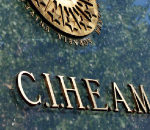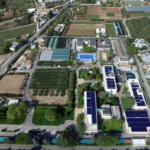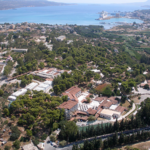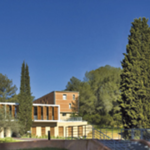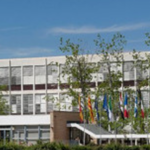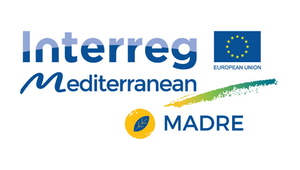Metropolitan Agriculture for Developing an innovative, sustainable and Responsible Economy
According to the FAO, a paradigm shift in both urban and agriculture development as well as in the planning and the formulation of policies , is required in order to ensure access to urban food security, improve environmental management and enhance rural-urban linkages. Although recognized as a major lever of eco-innovation for metropolis' sustainability and competitiveness, metropolitan and peri-urban agriculture (MPA) still suffers from a "mainstreaming gap", remaining overlooked by policy makers, academic research and the general public. As a result, the environmental cost of food is an invisible but nonetheless major burden for cities. The MADRE project aims to meet this challenge: supply MPA with key players and create a transnational cooperation in the MED area. Aiming at fostering a change process in the metropolitan food supply model, the project will capitalize on the wide set of academic knowledge, pilot actions and policies, networks and transnational cooperation in order to allow MPA reaching a critical level in the MED area. In depth assessment of available material will provide the baseline for an empowerment of MPA stakeholders and then to a formal commitment to initiate a transnational clustering process. Such a capitalization process will involve a multidisciplinary, pluralistic and multilevel partnership from 5 different mediterranean countries (Spain, France, Italy, Greece and Albania), each partner representing a flagship metropolitan area.
Objectives
The overall objective of the project is to initiate the creation of a transnational cluster of metropolitan agriculture stakeholders to enhance their capacity of eco-innovation.
Activities
- Take stock of the good practices of the MPA in Europe and elsewhere;
- Create metropolitan working groups in the 6 metropolitan areas (Barcelona, Bologna, Marseille, Montpellier, Thessaloniki, Tirana) by bringing together public decision-makers, academia, producers (farmers, industry, retailers, logisticians) and civil society;
- Set up transnational working groups for the creation of a transnational cluster on the MPA based on the good practices in the 6 metropolitan areas;
- Help the transnational cluster to spin-off good practices and to raise awareness amid the metropolitan public authorities.
Results and impacts
- Empowerment of local, regional and national stakeholders of MPA networks;
- Dissemination in the MED area of the consolidated set of knowledge on MPA best practices;
- Optimisation of eco-innovation capacity of metropolitan agriculture network.
Coordinator
Agence des Villes et Territoires Méditerranéens Durables (AVITEM) - France
More information
Source of funding: Programme Interreg Med/ fonds UE FEDER
Contacts:
- Candice Le Tourneur (AVITEM) - Responsable projet – c.letourneur@avitem.fr
- Selma Tozanli (CIHEAM-IAMM) – selmatozanli@gmail.com
- Fatima El Hadad – Gauthier (CIHEAM-IAMM) - elhadad@iamm.fr
Total budget: 1 173 175 €
Partners:
- ANIMA Investment Network (ANIMA) - France
- CIHEAM - Institut Agronomique Méditerranéen de Montpellier (CIHEAM-IAMM) - France
- Mediterranean Cities Network (Med Cities) - Espagne
- Aristotes University of Thessaloniki (AUTH) - Grèce
- Metropolitan City of Bologna (CimetBo) - Italie
- Agricultural University of Tirana (UBT) - Albanie


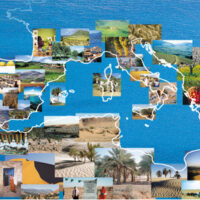 CIHEAM MontpellierOur vision is that of a Mediterranean basin characterised by a spirit of cooperation.
CIHEAM MontpellierOur vision is that of a Mediterranean basin characterised by a spirit of cooperation.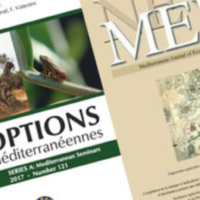 CIHEAM publicationsOur publications and communication tools aim to facilitate decision-making processes for political, economic and agricultural actors in the Mediterranean region
CIHEAM publicationsOur publications and communication tools aim to facilitate decision-making processes for political, economic and agricultural actors in the Mediterranean region News and events
News and events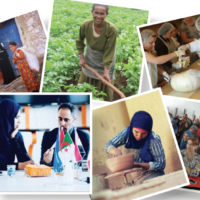 Press review (Scoop.it)
Press review (Scoop.it) Master programmesThe CIHEAM Montpellier stands for both personalised accompaniment and international openness.
Master programmesThe CIHEAM Montpellier stands for both personalised accompaniment and international openness.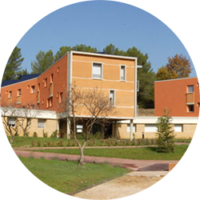 Campus & student lifeSince 1962, almost 95% of our foreign students have been granted accommodation on site.
Campus & student lifeSince 1962, almost 95% of our foreign students have been granted accommodation on site.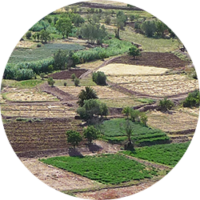 Doctoral platformShaping the scientists of tomorrow through research training… A natural commitment of the CIHEAM Montpellier
Doctoral platformShaping the scientists of tomorrow through research training… A natural commitment of the CIHEAM Montpellier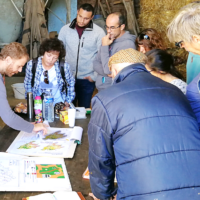 ProjectsOur research and cooperation projects are tools for inclusive development, they take into account the populations and rural and coastal territories of the Mediterranean.
ProjectsOur research and cooperation projects are tools for inclusive development, they take into account the populations and rural and coastal territories of the Mediterranean.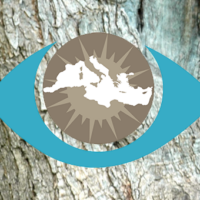 Mediterranean online catalogueA unique Documentation Center on the Mediterranean,
invested in sharing knowledge.
Mediterranean online catalogueA unique Documentation Center on the Mediterranean,
invested in sharing knowledge. Scientific productionThe scientific production of the CIHEAM Montpellier is the fruit of collaborations by our lecturer-researchers, associated experts, students and research partners.
Scientific productionThe scientific production of the CIHEAM Montpellier is the fruit of collaborations by our lecturer-researchers, associated experts, students and research partners. Becoming partnersCreating partnerships is part of the genetic make-up of the CIHEAM Montpellier... Join one of its projects or study programmes, support its actions.
Becoming partnersCreating partnerships is part of the genetic make-up of the CIHEAM Montpellier... Join one of its projects or study programmes, support its actions.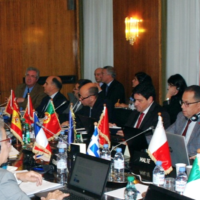 Ministerial meetingsThrough the Ministerial, CIHEAM contributes to the construction of a dialogue between the Mediterranean countries around questions relating to agriculture and the rural world.
Ministerial meetingsThrough the Ministerial, CIHEAM contributes to the construction of a dialogue between the Mediterranean countries around questions relating to agriculture and the rural world.